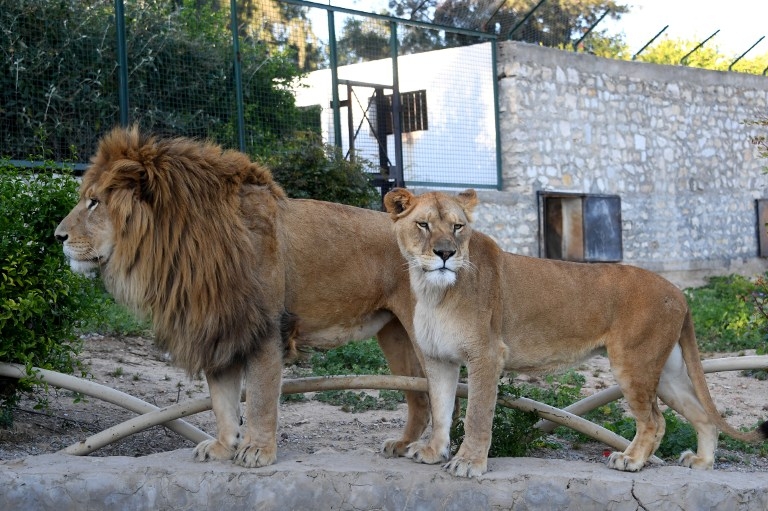Tunisian zoo reopens after crocodile stoned to death

A Tunisian zoo that closed after a crocodile was stoned to death has reopened, with extra guards and new signs instructing visitors not to throw things at the animals.
The Belvedere Zoo in central Tunis shut its gates in March after a public outcry over the animal's death.
Images shared on social media showed the dead crocodile's head beside what appeared to be a bloodied paving slab and another large rock.
The reptile's death was the latest in a string of scandals at the 50-year-old zoo, which has long been in need of renovation.
Pictures of the site filled with litter caused an outcry on social media last year.
'People thought everything was allowed, that that was what freedom meant'
- Mahmoud Latiri, zoo director
Staff have other complaints.
"Some people, when they see a lion sleeping, want to throw a pebble at it to get it up. We ask them to stop," said Taoufik Yaacoubi, a guard at the zoo for 20 years. "It's not normal."
Zoo visitors often left rubbish on the ground or threw it into ponds, with some hurling bottles of water into the enclosures.
Director Mahmoud Latiri said that before the closure, "people thought they were in a circus".
He echoed widespread complaints that delinquent behaviour had risen in Tunisia since a revolution toppled longtime dictator Zine El Abidine Ben Ali in 2011.
"People thought everything was allowed, that that was what freedom meant," Latiri said.
Environment Minister Riadh Mouakher said videos from the zoo even showed children sitting on the backs of rhinoceroses.
Playground, not a zoo
Following the crocodile's death, Mouakher decided to deploy extra guards at the zoo, which he said was "in a rather dilapidated state".
"It was more a playground than a zoo," he said.
Since the zoo reopened over the weekend following an extensive makeover, he said he had seen an "improvement in behaviour".
The authorities have cleaned pools, restored pathways, planted thousands of shrubs and flowers, and installed rubbish bins every five metres.
Plastic bags, which are dangerous to animals that eat them, are now banned. New signs instruct visitors not to disturb, feed or throw things at the animals.
"We have a better zoo," Mouakher said.
READ: Mosul's lost pride: Last lion starving in zoo destroyed by war
His ministry is hoping to spend a further $6.5 million on developing the Belvedere Park surrounding the zoo.
School holidays have bumped visitor numbers up to 8,000 a day.
This week, families strolled along the pathways in the sunshine.
Riadh, accompanied by his wife and daughter, said he could see a definite improvement since the makeover.
"Now it is cleaner. You can see that they are looking after it," he said. "Now when you pay, you understand why."
New MEE newsletter: Jerusalem Dispatch
Sign up to get the latest insights and analysis on Israel-Palestine, alongside Turkey Unpacked and other MEE newsletters
Middle East Eye delivers independent and unrivalled coverage and analysis of the Middle East, North Africa and beyond. To learn more about republishing this content and the associated fees, please fill out this form. More about MEE can be found here.

